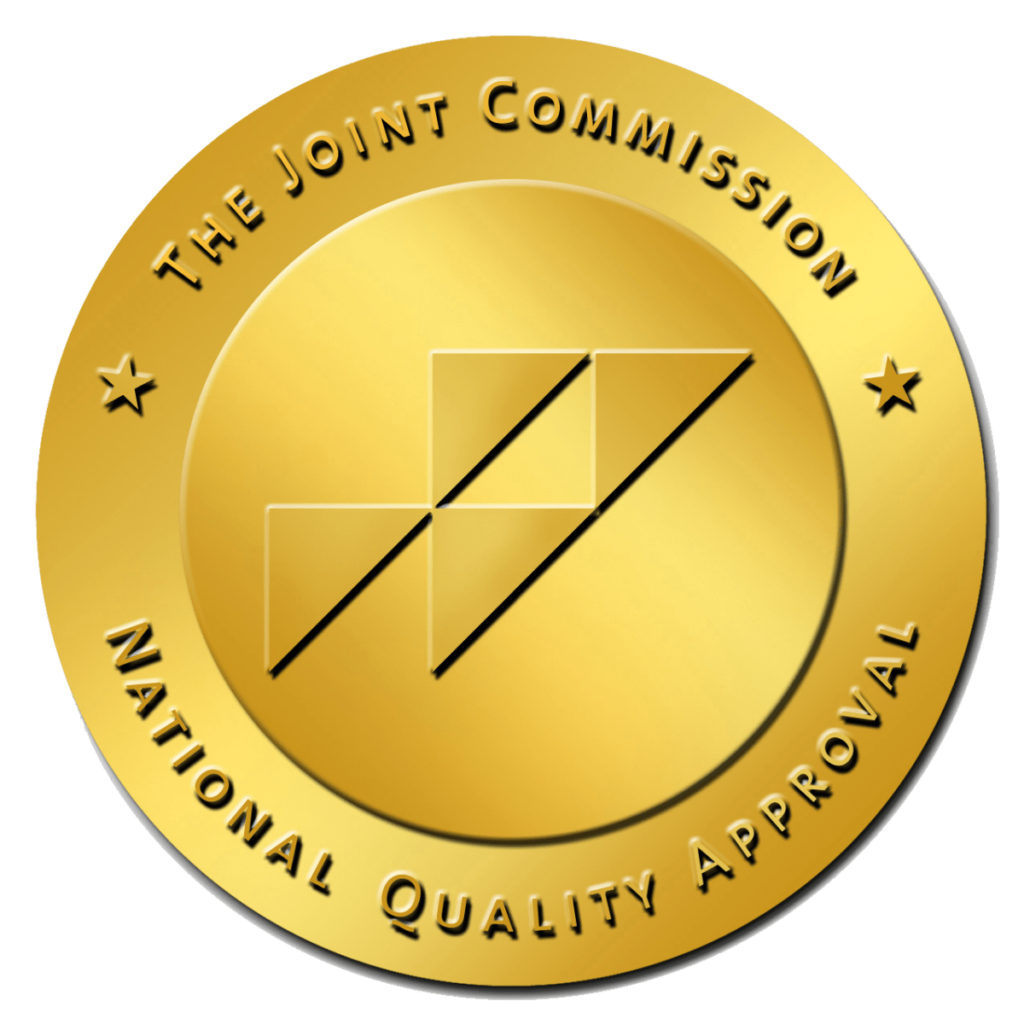Choose Facility
Bad Ways to Deal with Stress: How To Avoid Unhealthy Coping
Stress is an unavoidable part of life. Whether it stems from work pressures, personal challenges, or unexpected events, stress can take a toll on our mental and physical well-being if not managed effectively. We all have our own ways of dealing with stress, but not all coping strategies are created equal. In fact, some approaches can do more harm than good in the long run.
In this blog post, we will delve into the negative ways individuals often resort to when facing stress. From avoidance and denial to excessive drinking and emotional eating, these coping mechanisms may provide temporary relief but come with detrimental consequences. We will explore the adverse effects of each negative coping technique on mental health, relationships, physical well-being, and overall quality of life.
8 Bad Ways to Deal with Stress
When stress becomes overwhelming, it’s natural to seek relief in various ways. However, some coping strategies may provide temporary respite but ultimately worsen the situation. It’s essential to recognize these negative ways of dealing with stress in order to break free from their harmful cycle. Here are some commonly employed negative coping mechanisms:
- Avoidance and Denial: Ignoring or avoiding stressors instead of facing them head-on may seem easier in the moment. However, this approach only postpones the inevitable and allows stress to accumulate, potentially leading to greater problems down the line.
- Excessive Drinking as an Escape: Turning to alcohol as a means of escape can provide temporary numbing effects, but it doesn’t address the root causes of stress. In fact, relying on alcohol as a coping mechanism can lead to dependency, addiction, and a host of physical and mental health issues.
- Emotional Eating and Unhealthy Habits: Seeking comfort in food during times of stress is a common response. However, relying on unhealthy, sugary, or fatty foods as a way to cope can lead to weight gain, poor nutrition, and a negative cycle of emotional eating.
- Procrastination and Avoiding Responsibilities: Putting off tasks and responsibilities may provide momentary relief, but it often results in increased stress as deadlines approach and tasks accumulate. Procrastination can hinder productivity, strain relationships, and contribute to a constant state of anxiety.
- Escaping Reality through Excessive Screen Time: Engaging in excessive screen time, whether through social media, binge-watching shows, or endlessly scrolling through news feeds, may seem like a distraction from stress. However, this escape can disconnect us from the present moment, hinder problem-solving abilities, and exacerbate feelings of stress and anxiety.
- Suppressing Emotions and Bottling Up Feelings: Some individuals try to cope with stress by burying their emotions and putting on a brave face. However, suppressing emotions can lead to increased tension, strain relationships, and contribute to mental and emotional distress.
- Chronic Complaining and Negative Thinking: Constantly dwelling on negative thoughts and complaining about stressors can keep us trapped in a cycle of negativity. This approach does not offer any solutions or constructive ways to address the stressors at hand.
- Escaping Reality through Substance Abuse: Turning to drugs or other substances as a means of escaping stress is a dangerous path to tread. Substance abuse can quickly spiral out of control, leading to severe health issues, addiction, and significant personal and social consequences.
The Consequences of Negative Coping Mechanisms
Engaging in negative coping mechanisms may provide temporary relief, but it’s crucial to understand the long-term consequences they can have on our well-being. Let’s delve into the adverse effects of these negative ways of dealing with stress:
Avoidance and Denial
By avoiding or denying stressors, we fail to address the underlying issues causing our distress. Over time, this can lead to increased anxiety, a sense of helplessness, and the exacerbation of stress-related problems.
Excessive Drinking as an Escape
While alcohol may offer temporary relief, relying on it as a coping mechanism can have severe repercussions. Excessive drinking can contribute to addiction, liver damage, mental health disorders such as depression and anxiety, strained relationships, and impaired judgment.
Emotional Eating and Unhealthy Habits
Using food as a source of comfort during stressful times can lead to weight gain, poor nutrition, and negative body image. Over time, this can contribute to health problems like obesity, diabetes, heart disease, and a vicious cycle of emotional eating.
Procrastination and Avoiding Responsibilities
Procrastinating and avoiding tasks may temporarily alleviate stress, but it often leads to increased pressure and a greater sense of overwhelm. This can result in missed deadlines, compromised work or academic performance, strained relationships, and elevated stress levels.
Escaping Reality through Excessive Screen Time
Excessive screen time can negatively impact our mental health and well-being. It can lead to decreased productivity, disrupted sleep patterns, social isolation, diminished problem-solving skills, and increased feelings of stress, anxiety, and dissatisfaction with our own lives.
Suppressing Emotions and Bottling Up Feelings
Suppressing emotions and not addressing our feelings can have detrimental effects on our mental and emotional well-being. It can contribute to increased stress, chronic tension, strained relationships, and the development of mental health issues such as depression, anxiety, and emotional instability.
Chronic Complaining and Negative Thinking
Constantly dwelling on negative thoughts and engaging in chronic complaining can reinforce a negative mindset. This can perpetuate stress, hinder problem-solving abilities, strain relationships, and negatively impact overall mental well-being.
Escaping Reality through Substance Abuse
Using substances to escape stress only provides temporary relief, while the consequences can be severe. Substance abuse can lead to addiction, deteriorating physical and mental health, strained relationships, financial difficulties, legal issues, and a significant decline in overall quality of life.
Understanding the consequences of these negative coping mechanisms empowers us to break free from their harmful cycle. By recognizing the negative impact they have on our well-being, we can actively seek healthier alternatives to manage stress effectively and cultivate a more balanced and fulfilling life.
Positive Coping Methods For Dealing With Stress In A Healthy Way
Stress is an inevitable part of life, but how we manage it can greatly impact our well-being. In the previous section, we explored the negative ways people often deal with stress, which can have detrimental effects on various aspects of our lives. However, it’s important to remember there are positive ways to manage stress that can promote resilience, emotional well-being, and a balanced lifestyle. In this section, we will transition to discussing the positive coping strategies that can help us effectively manage stress and improve our overall quality of life.
Seeking Social Support and Connection
One of the most important positive ways to manage stress is by seeking social support and fostering healthy relationships. Reaching out to friends, family, or support networks can provide a sense of belonging, understanding, and comfort during challenging times. Sharing our thoughts and feelings with trusted individuals can offer different perspectives, validation, and emotional support.
Engaging in Regular Physical Activity
Regular physical activity is not only beneficial for our physical health but also plays a significant role in managing stress. Exercise releases endorphins, our brain’s natural feel-good chemicals, which can improve our mood, reduce anxiety and depression, and increase our overall sense of well-being. Engaging in activities such as walking, running, dancing, or practicing yoga can help us release tension and promote relaxation.
Practicing Relaxation Techniques and Mindfulness
Relaxation techniques and mindfulness practices are powerful tools for managing stress. Deep breathing exercises, meditation, yoga, and mindfulness can help us calm our minds, relax our bodies, and bring our attention to the present moment. These practices promote inner calm, reduce stress levels, and enhance our ability to cope with challenging situations.
Time Management and Prioritization
Effective time management and prioritization can significantly reduce stress levels. By organizing our tasks, setting realistic goals, and establishing a balanced lifestyle, we can prevent overwhelm and create a sense of control over our daily lives. Prioritizing self-care, leisure activities, and breaks throughout the day allows us to recharge and maintain a healthier work-life balance.
Engaging in Hobbies and Creative Outlets
Pursuing hobbies and creative outlets is not only enjoyable but also a valuable means of stress management. Engaging in activities that bring us joy and allow us to express ourselves creatively can serve as a form of relaxation and provide a break from stressors. Whether it’s painting, writing, playing an instrument, or gardening, these activities offer a sense of fulfillment and promote a positive mindset.
Seeking Emotional Support and Therapy
Sometimes, professional help, therapy, or counseling is necessary to develop healthy coping mechanisms, gain insights, and find emotional support. Therapists can provide guidance, teach coping skills, and help us navigate challenging situations. Seeking emotional support from a trained professional can be crucial to managing stress effectively and promoting mental well-being.
Practicing Self-Care and Healthy Lifestyle Habits
Self-care is essential for managing stress and maintaining overall well-being. Taking care of our physical and emotional needs through activities like getting adequate sleep, maintaining a healthy diet, engaging in regular self-care routines, and incorporating stress-reducing habits like journaling or spending time in nature can significantly impact our stress levels and promote a positive mindset.
Setting Boundaries and Saying No
Setting boundaries and learning to say no are important aspects of stress management. By identifying our limits, managing commitments, and communicating our needs effectively, we can avoid overwhelm, protect our well-being, and create a healthier balance between work, relationships, and personal time.
Cognitive Restructuring and Positive Thinking
Challenging negative thoughts, reframing perspectives, and fostering positive thinking patterns can greatly influence our response to stress. Cognitive restructuring techniques help us identify and replace negative thoughts with more realistic and positive ones.
Balancing Work and Leisure
Maintaining a healthy work-life balance is vital for managing stress effectively. Allocating time for leisure activities, hobbies, and relaxation helps prevent burnout and promotes overall well-being. Taking breaks, disconnecting from work-related matters, and engaging in activities that bring us joy contribute to a healthier and more fulfilling lifestyle.
Stress Is Normal But You Can Beat It
Incorporating positive coping mechanisms into our lives is crucial for effectively managing stress and promoting our mental and physical well-being. Seeking social support, engaging in regular physical activity, practicing relaxation techniques and mindfulness, managing time effectively, pursuing hobbies, seeking therapy, practicing self-care, setting boundaries, fostering positive thinking, and balancing work and leisure are all valuable strategies. By prioritizing our stress management with these healthy approaches, we can enhance our resilience, improve our quality of life, and cultivate a greater sense of well-being.
Certified by the State Department of Health Care Services. Certification Number: 100011AP. Expiration Date: 12/31/2025. Certification Number: 100011BP. Expiration Date: 06/30/2024.
https://data.chhs.ca.gov/dataset/sud-recovery-treatment-facilities
All Rights Reserved © 2024 by Sierra Meadows Behavioral Health | Sitemap | Privacy Policy |HIPAA Statement | Billing Policy

